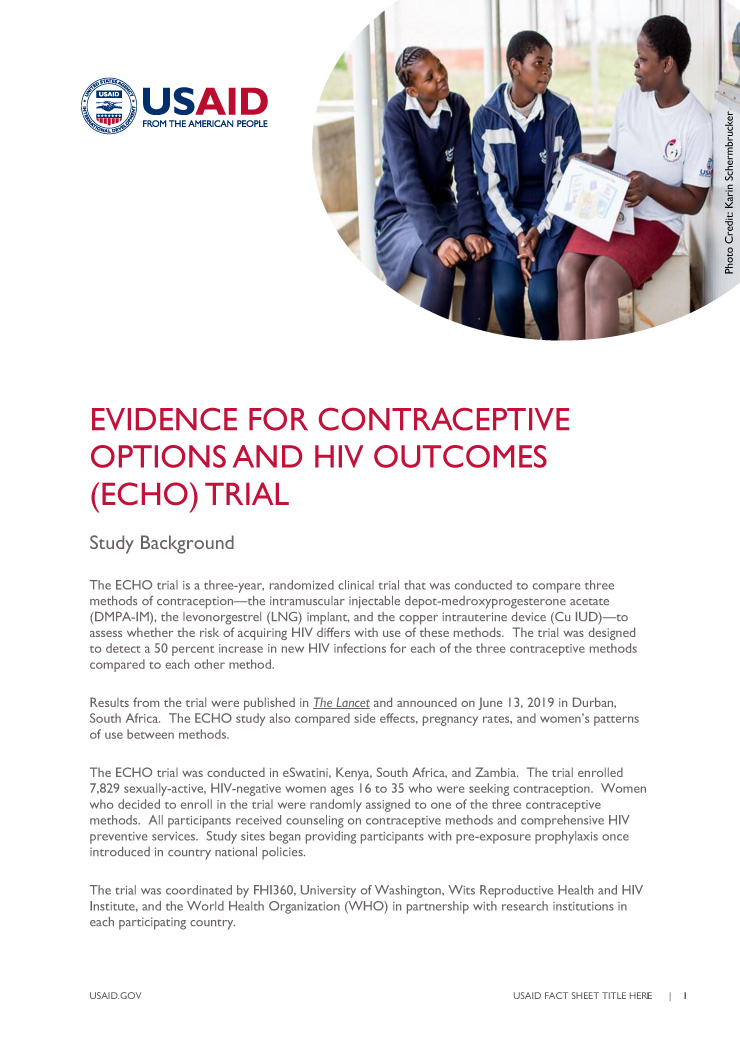- What We Do
- Agriculture and Food Security
- Democracy, Human Rights and Governance
- Economic Growth and Trade
- Education
- Environment and Global Climate Change
- Gender Equality and Women's Empowerment
- Global Health
- Humanitarian Assistance
- Transformation at USAID
- Water and Sanitation
- Working in Crises and Conflict
- U.S. Global Development Lab
Speeches Shim
The ECHO trial was a three-year, randomized clinical trial that was conducted to compare three methods of contraception—the intramuscular injectable depot-medroxyprogesterone acetate (DMPA-IM), the levonorgestrel (LNG) implant, and the copper intrauterine device (Cu IUD)—to assess whether the risk of acquiring HIV differs with use of these methods. The trial was designed to detect a 50 percent increase in new HIV infections for each of the three contraceptive methods compared to each other method.
Results from the trial were published in The Lancet and announced on June 13, 2019 in Durban, South Africa. The ECHO study also compared side effects, pregnancy rates, and women’s patterns of use between methods.
The ECHO trial was conducted in eSwatini, Kenya, South Africa, and Zambia. The trial enrolled 7,829 sexually-active, HIV-negative women ages 16 to 35 who were seeking contraception. Women who decided to enroll in the trial were randomly assigned to one of the three contraceptive methods. All participants received counseling on contraceptive methods and comprehensive HIV preventive services. Study sites began providing participants with pre-exposure prophylaxis once introduced in country national policies.
The trial was coordinated by FHI360, University of Washington, Wits Reproductive Health and HIV Institute, and the World Health Organization (WHO) in partnership with research institutions in each participating country.


Comment
Make a general inquiry or suggest an improvement.